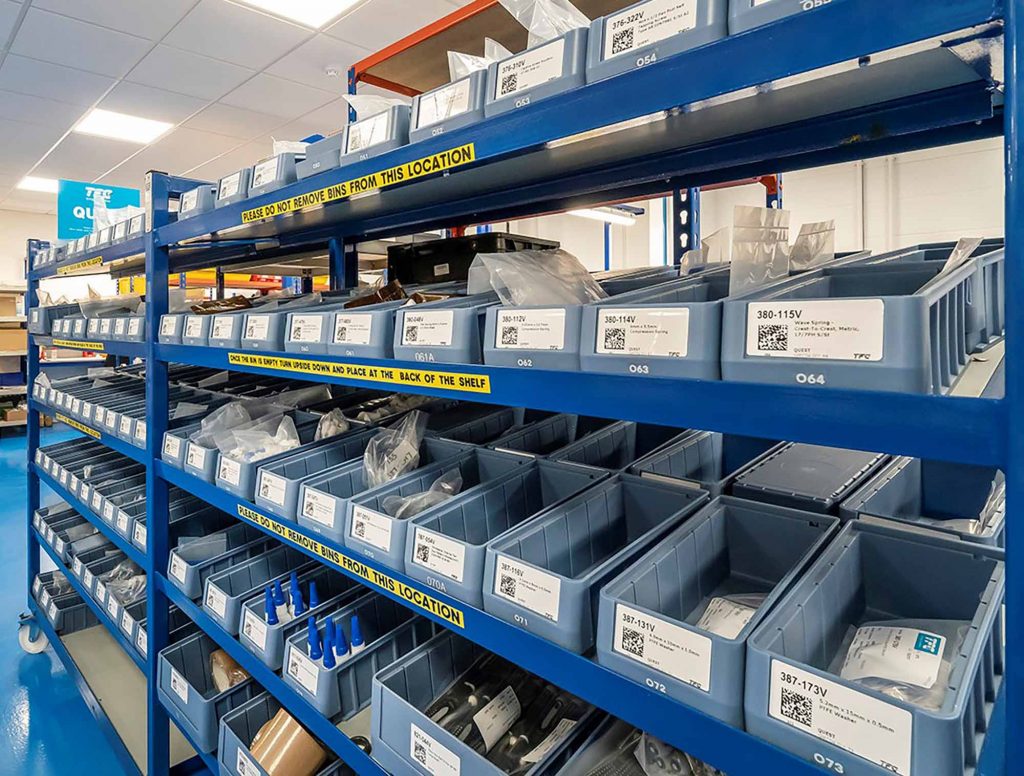Established over 60 years ago, TFC is a leading supplier of industrial fastening products and service solutions to a wide range of manufacturers. The company offers highly successful bespoke inventory management solutions to customers via their network of UK and European locations, backed by a global network of supply chain partners, from manufacturers to logistics, all carefully chosen to fit our commitment to quality.
TFC’s customers receive exemplary customer service, procurement problem solving, predictable costs and exceeded QA compliance levels. In addition, TFC offers a technical design and solutions capability to help customers achieve breakthroughs in product advancement, innovation and significantly raised standards of manufacturing efficiency.
Interview with Alan Scrafton, Head of Marketing at TFC.
Easy Engineering: What are the main areas of activity of the company?
Alan Scrafton: We pride ourselves on working in partnership with our customers and strive to be more than just a service provider – we hope to become an extension of our customer’s production and procurement teams. By building a long-term relationship with our customers, we have full visibility of your supply chain and can manage it efficiently and react to evolving material supply needs. And our customer’s industries are wide-ranging, from electronics to automotive and HVAC to construction, meaning we can bring success to any business.
E.E: What are the ranges of products?
A.S: We supply a wide selection of C-class products including bolts, screws, circlips, springs, bearings, seals, O-rings and personal protective equipment (PPE), to name a few. We are the preferred supply partner for ARaymond™ Quick Connectors and Fuel Connectors and we are the leading European supplier of Smalley Spirolox® Retaining Rings, Snap Rings and Wave Springs.
Our Vendor Managed Inventory (VMI) solutions are a powerful way to simplify inventory management. We take full responsibility for the optimisation and management of customers’ inventory, allowing them to save on time, costs, paperwork and warehouse and storage space.

E.E: What’s the news about new products? What are the most innovative products marketed?
A.S: We supply Smalley’s new Revolox™ Self-Locking Retaining Rings, which have a patented ‘dimple and slot’ design that locks into place during shaft rotation. This gives them significantly higher revolutions per minute (rpm) capacity than equivalent non-locking rings, making them ideal for the electric vehicle (EV) industry where shafts can reach up to 15,000 rpm. These rings are also suited to high-volume automated production owing to their low weight and evenly distributed mass, which improves part balance and decreases vibration.
We recently launched VMI Smart Solutions — a portfolio of enterprise-level, cloud-based, customisable supply chain management solutions, designed to give individual customers improved insight into and control over their supply chains.
The solutions are powered by technology from Inventor-e to provide real time monitoring of stock levels and automated replenishment. With VMI Smart Solutions, TFC can report on who has used tools and higher-value assets, even who has accessed PPE and at what time, to help our customers monitor and control their stocks and compliance.
E.E: At what stage is the market where you are currently active? What can you tell us about market trends?
A.S: The state of supply chain management has been massively affected by the pandemic, and a number of other unpredicted factors and the impact differs from industry to industry.
For example, the global semiconductor shortage was a big hit to the automotive industry, and the EV market is seeing a huge boom. Other areas that were affected by lockdown and have since rebounded include furniture manufacture and modular construction. This has brought the construction site into the factory setting, producing modules for housing, hospitals, office blocks and other buildings offsite.
In light of recent events, supply chain management has never been a hotter topic, and manufacturers are looking more than ever at how to optimise and safeguard their supply chains. For example, some automotive manufacturers are standardising components across models to reduce reliance on parts shipping and facilitate more-reliable regional manufacturing.

E.E: What estimations do you have for 2022?
A.S: Global supply chain disruption in recent years has caused many manufacturers to stockpile parts, swapping their usual ‘just-in-time’ (JIT) approach for one of ‘just-in-case’ (JIC). This brings benefits in terms of reliable availability of parts on site, but also has drawbacks, for example increased space requirements and expense. With warehouse costs on the rise, the JIC approach could be seen as a high-priced alternative.
Going forward, manufacturers may look for some kind of compromise between the two approaches, to make sure that they have stock in hand while saving on warehouse space as much as possible.
VMI is a great way of achieving this — the manufacturer can delegate acquisition and storage of stock to their VMI provider, while having the peace of mind that quality assured stock is available to them as and when they need it.
